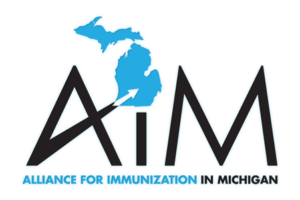Introducing Allergenic Foods To Your Baby
Introduction of Allergenic Foods to your Baby
A big thanks to Dr. Poel for the excellent overview on introducing solid food to our babies! As Dr. Poel mentioned “waiting to introduce highly allergenic foods has shown no benefit in reducing the chance of your child developing a food allergy…”, so how can these foods be safely introduced to your little one’s diet?
First, let’s discuss food allergies in a little more detail:
“To be or not to be” allergic?
Adverse reactions to foods are common, and as a parent, it can be scary to continue to give these foods to your baby, however, removing foods that are not truly allergenic from our children’s diet can in fact promote the development of food allergies. Although true allergy to food is rarer than intolerance to food, it can result in life-threatening symptoms- so we must carefully differentiate food intolerance vs. food allergy. Food allergy is defined as “a reaction in our immune system that occurs shortly after eating a certain food.” If you believe your baby has had an adverse reaction to a certain food or a food allergy, discuss it with his/her pediatrician who can guide you on safe ways to continue food introduction.
“Part of the secret of a success in life is to eat what you like and let the food fight it out inside” Mark Twain
Well said Mr. Twain! So let’s help our children be successful eaters, by avoiding food allergies. There is a time in our babies’ life in which they are more prone to develop allergies to food, which is why- as we learned in last month’s blog- we should consider introducing solid food between 4 and 6 months of age. Research about peanut allergy has been ongoing for many years and its related findings can help us to follow certain recommendations about other foods as well. Although any food has potential to cause an allergic reaction, these foods are known to be highly allergenic:
- Peanuts
- Tree nuts
- Milk
- Eggs
- Fish
- Shellfish
- Soy
- Wheat
- And some Allergists include: Sesame seed
The research mentioned above continues, and researchers are currently working on establishing formal guidelines on the introduction of highly allergenic foods, however an interim guideline was released in 2017:
- Baby should be at least 4 months old AND show solid food readiness (see Dr. Poel’s November blog)
- Baby should have tried and tolerated some starter foods (Pureed cereals, veggies, and fruits)
- When you are considering introducing highly allergenic foods, please make sure to:
- Feed your baby only when healthy
- Give first serving of allergenic food at home
- Ensure one on one adult supervision (primary care giver), without distractions
- Adult supervising feeding (primary care giver) must be able to spend at least 2 hours with baby after the feeding, and closely monitor for the next 24 hours
4. Introduce highly allergenic foods to baby if no history of eczema or food allergy (if your baby has eczema or known food allergy, please discuss with his/her pediatrician before proceeding):
- Prepare full portion of allergenic food (ie. 2 teaspoons of peanut butter prepared in a SAFE way, since peanut butter is a choking hazard for babies- please talk to your baby’s pediatrician on how to safely incorporate peanut butter into baby’s food)
- Offer your baby a small part of the peanut protein containing food on the tip of a soft tip spoon
- Wait 10 minutes
- If no allergic reaction noted- give remaining serving of food as per your baby’s usual eating habits
- Monitor very closely for the next 2 hours (when most allergenic reactions occur) and closely for the next 24 hours (for delayed reactions)
- If no reaction noted in 24 hours, you may continue to introduce the next highly allergenic food from the list above.
For more helpful information on food allergies, please check out the American Academy of Allergy, Asthma and Immunology website:
https://www.aaaai.org/conditions-and-treatments/allergies/food-allergies
…And most importantly:
Have fun feeding your baby. Eating should always be enjoyable and promote lifelong healthy habits.
Stay warm, have a Merry Christmas, and enjoy this Holiday Season with your beautiful families!
Dr. Egelmeer





















